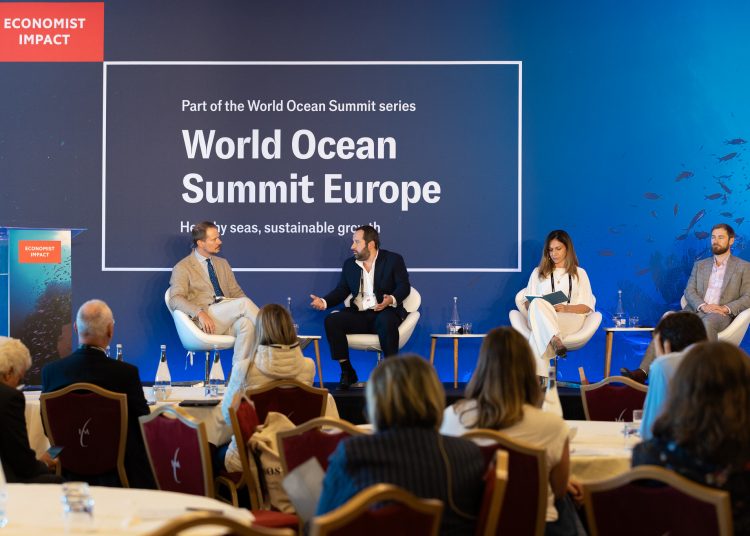INESC TEC participated in the latest edition of the World Ocean Summit Europe 2025. Representing the Institute, researcher Bernardo Silva took part in a strategic session on the importance of ocean renewable energy for Europe’s long-term energy security.
On September 9, Cascais hosted this initiative by the British newspaper The Economist, dedicated to discussing and promoting collaborative actions for a sustainable Blue Economy. The conference aimed to bring together key players in the European maritime sector and follow up on the conclusions of the United Nations Ocean Conference (UNOC), held in Nice (June).
Researcher Bernardo Silva, head of renewable energies at INESC TEC, had the opportunity to participate in the strategy session Harnessing Ocean Renewable Energy for Long-Term European Energy Security. The panel also included Aaron Smith, commercial director at Principle Power, and Cristina Simioli, director of the Renewables Grid Initiative, and was moderated by Jonathan Birdwell, director of ‘Policy and Insights’ at Economist Impact.
Offshore renewables – like floating wind turbines and wave energy – are crucial to achieving carbon neutrality and European energy independence. But what type of investment should be made? Which technologies and infrastructures should be prioritised in these projects?
“INESC TEC had the opportunity to share our vision, particularly regarding the creation of hybrid offshore farms, allowing the sharing of interconnection resources between different renewable energy sources”, explained Bernardo Silva.

The session also focused on the “need for greater resilience in energy systems, with offshore energy sources being able to exploit the maritime network paradigm, with various interconnection points with onshore systems,” mentioned Bernardo Silva. “This not only allows for increased renewable penetration but also increased interconnection capacities.”
The participants discussed other aspects related to marine robotics, “which will play a key role in the environmental and structural monitoring of assets related to ocean energy”, the researcher pointed out.
Concerning said monitoring initiatives, INESCTEC.OCEAN – an INESC TEC-led project dedicated to ocean R&D&I – is developing a pilot project with SINTEF. Together with the Norwegian partners, the goal is to explore new systems for monitoring and maintaining offshore energy structures, namely underwater components of floating wind turbines.
The researcher mentioned in this news piece is associated with FEUP.


 News, current topics, curiosities and so much more about INESC TEC and its community!
News, current topics, curiosities and so much more about INESC TEC and its community!